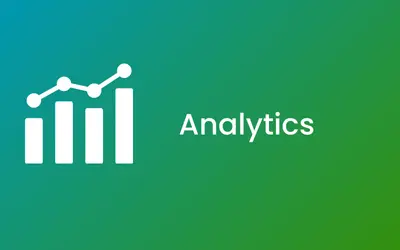London is a global hub of data science and analytics, making it an ideal location to pursue a career in this field. An analytics course in London can prepare students with the skills and knowledge necessary to compete in the ever-evolving world of data analytics. Analytics courses in London can be found at various levels, from undergraduate to postgraduate degrees and certificates. Some of the best analytics programs in London are offered by top universities such as Imperial College London and University College London. One of the most popular programs in London is the MSc in Business Analytics at Imperial College London, which provides students with a comprehensive understanding of data analytics in a business context. The course focuses on statistical analysis, data mining and machine learning, and provides students with the skills to extract insights from large datasets, develop predictive models, and make data-driven decisions. The MSc in Business Analytics has a strong industry focus, with students working on real-world business challenges through internships and consulting projects. Imperial College London has partnerships with leading companies such as Accenture, Amazon, and KPMG, providing students with opportunities to gain exposure to the industry and network with professionals. Another top program in London is the MSc in Data Science at University College London. The course covers the fundamentals of data science, including data mining, machine learning, and statistical analysis. The program also emphasizes the ethical and social aspects of data science, exploring issues such as privacy, bias, and transparency. The MSc in Data Science at University College London is one of the most competitive data science programs in the world, with a rigorous curriculum and top-tier faculty. Students have access to state-of-the-art facilities, including a data visualization lab and a machine learning lab. The program also offers students the opportunity to work on projects with industry partners, giving them valuable experience and exposure to the field. Apart from these two leading universities, other institutions of higher education offer analytics courses. These include the London School of Economics, University of Greenwich, and City, University of London. The analytics industry in London has grown significantly in recent years, driven by advancements in technology and the increasing importance of data-driven decision making. The city is home to many leading companies such as Amazon, Google, and Barclays that have established data science teams. It’s also an attractive location for startups and emerging companies in the analytics space. For students who want to pursue a career in analytics, London offers many opportunities for internships and job placements. The city has a strong network of professionals in the industry and a thriving meetup community, providing students with access to events and resources that can help them build their skills and knowledge. In conclusion, an analytics course in London can provide students with a top-tier education and prepare them for a career in one of the most exciting and dynamic fields today. From top-tier universities to industry partnerships and a thriving analytics community, London offers a range of opportunities for students seeking to enter the data science and analytics industry.

₹60,000


Watch how students, freshers, and professionals transformed their careers with Skillfloor's Analytics Courses Reviews
Hurry Up!
Limited seats call us now for amazing discounts on Analytics Courses course



Skillfloor is a Government-Recognized Skill Development Institute under Startup India (DPIIT), offering career-focused certification programs in Analytics, Artificial Intelligence (AI), Data Science, Digital Marketing, SEO, and related domains. As one of India's largest training institutes, our courses emphasize hands-on projects, expert mentorship, and skills aligned with real hiring needs. With flexible learning options - online, offline, and hybrid, plus 100% scholarships for selective students, we make quality, job-ready education accessible.
Explore the program that aligns with your goals and take the next step with Skillfloor.



- Overview of data analysis and its importance in business
- Types of analytics: Descriptive, Predictive, Prescriptive
- Role of data in decision-making processes
- Introduction to common tools: Tableau, PowerBI, Excel
- Ethical considerations in data collection and analysis
- Data sources: Primary and secondary data
- Data collection methods (surveys, web scraping, databases)
- Data cleaning techniques (handling missing values, outliers)
- Data transformation and feature engineering
- Data storage concepts (structured vs. unstructured data)
- Descriptive statistics: Mean, median, mode
- Data visualization basics (histograms, scatter plots)
- Identifying data patterns and trends
- Outlier detection and handling methods
- Correlation and causation analysis
- Inferential statistics and probability theory
- Hypothesis testing (t-tests, chi-square tests, ANOVA)
- Measures of central tendency and variability
- Confidence intervals and margin of error
- Regression analysis: Linear and logistic regression
- Principles of effective data visualization
- Types of charts and their uses (bar, line, pie, heatmaps)
- Designing dashboards for different audiences
- Interactive visualization techniques
- Data storytelling for impactful presentations
- Time series analysis and forecasting methods
- Clustering and segmentation analysis
- Decision trees and classification techniques
- Introduction to machine learning in business analytics
- Model evaluation and selection
- Basics of SQL for data manipulation
- Creating databases and relationships
- Aggregating data with SQL (GROUP BY, JOIN)
- Data modeling for business intelligence (star and snowflake schemas)
- Case study: Building a business model with SQL
- Connecting and preparing data in Tableau
- Creating basic visualizations (charts, maps)
- Advanced Tableau functions (LOD calculations, table calculations)
- Building interactive dashboards and stories
- Publishing and sharing visualizations on Tableau Server/Online
- Introduction to PowerBI workspace and components
- Data import and transformation with Power Query
- Data modeling and relationships in PowerBI
- Creating and customizing visualizations
- Publishing and collaborating on PowerBI Service
- Selecting a real-world dataset for analysis
- Defining business questions and objectives
- Conducting data analysis and visualization
- Presenting findings in a comprehensive dashboard
- Peer review and feedback on project